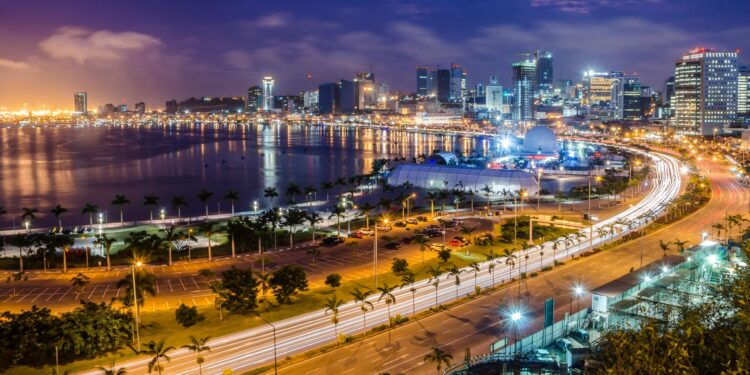In a shocking escalation of civil unrest, Angolan authorities have detained over 1,000 individuals amid widespread protests triggered by skyrocketing fuel prices that have exacerbated the country’s ongoing economic crisis. The demonstrations, which erupted in various cities across the southern African nation, have drawn attention to the deep-seated frustrations of citizens struggling with inflation, unemployment, and the burden of increased living costs. As the government grapples with the fallout from these protests, the situation remains tense, raising concerns over human rights and the potential for further violence. This article delves into the context of the protests, the government’s response, and the implications for Angola’s political landscape as citizens demand accountability and change.
Angola’s Escalating Unrest Triggers Widespread Arrests Amidst Fuel Crisis
In recent days, Angola has been rocked by intense protests spurred by a severe fuel crisis that has left citizens struggling with soaring prices and widespread shortages. The government’s inability to address the rising costs of basic necessities has triggered a wave of discontent. Demonstrators took to the streets demanding action, and the situation escalated dramatically, leading to unrest in multiple cities. Reports indicate that over 1,000 individuals have been detained amidst the chaos as authorities seek to quash the growing dissent.
The series of protests has raised serious concerns about human rights violations, with eyewitness accounts detailing the heavy-handed responses from security forces. The following factors have contributed significantly to the unrest:
- Fuel Scarcity: Dramatic shortages have left many unable to fill their tanks or afford basic transportation.
- Rising Living Costs: Inflation has exacerbated the situation, with food and other essentials becoming increasingly unaffordable.
- Government Response: Critics claim that the authorities have not provided sufficient solutions or transparent communication regarding the crisis.
Understanding the Underlying Causes of the Angola Fuel Protests
The recent protests in Angola, which resulted in over 1,000 arrests, stem from a complex web of socio-economic grievances. Among the most prominent triggers are the rising fuel prices, which have outpaced the income growth of many Angolans. With a significant portion of the population living below the poverty line, basic necessities have become increasingly unaffordable. Citizens are particularly frustrated by perceived government inefficiency and corruption, as these issues compound their economic challenges. The situation has led to widespread anger and a palpable sense of injustice, pushing people to take to the streets in mass demonstrations.
Aside from fuel prices, several other factors have contributed to the unrest. They include:
- High unemployment rates: Many young people are struggling to find jobs.
- Inflation: The cost of living has surged, making it difficult for families to make ends meet.
- Lack of government accountability: Citizens feel disconnected from the political process.
- Limited access to basic services: Health care, education, and sanitation remain inadequate in many areas.
These grievances highlight a fundamental disconnect between the Angolan government and its citizens, calling into question the effectiveness of current economic policies. As protests escalate, it is crucial for the government to address these underlying issues to restore stability and regain public trust.
Policy Recommendations for Stabilizing Angola’s Economic Landscape
To address the escalating tensions in Angola resulting from recent fuel price protests, policymakers must adopt a comprehensive approach that addresses both immediate and long-term economic stability. Prioritizing transparent communication between the government and citizens can help alleviate public anxiety over fuel prices and inflationary pressures. Furthermore, the government should consider implementing subsidies for essential goods and services, such as transportation and food, to cushion the impact of rising costs on low-income households. This can be coupled with a strategic reassessment of tax policies to ensure that taxation does not disproportionately burden vulnerable populations.
In addition to immediate measures, Angola needs to foster economic resilience by diversifying its revenue sources beyond oil dependency. Investing in renewable energy, agriculture, and technology sectors will stimulate job creation and reduce vulnerability to global oil price fluctuations. Establishing a framework for public-private partnerships can attract foreign investment and expertise in these emerging sectors. Lastly, enhancing the transparency and efficiency of the public procurement process will help eliminate corruption, ensuring funds are directed toward necessary infrastructure and social programs that ultimately stabilize the economy.
Key Takeaways
In summary, the recent unrest in Angola has resulted in the arrest of over 1,000 individuals following widespread protests triggered by soaring fuel prices and escalating economic hardships. The demonstrations, which began as a grassroots response to the rising cost of living, have underscored the growing discontent among the population towards government policies and economic management. As authorities continue to respond with a heavy hand, including mass arrests and crackdowns on dissent, the situation remains tense and fluid. The international community is closely monitoring developments in Angola, as the protests highlight deeper issues of governance, social inequality, and the need for comprehensive reforms. As events unfold, the call for dialogue and a peaceful resolution to the underlying grievances will be crucial in addressing the aspirations of the Angolan people.














Former NFL Stars Applaud New York Giants’ Bold Decision to Hire John Harbaugh